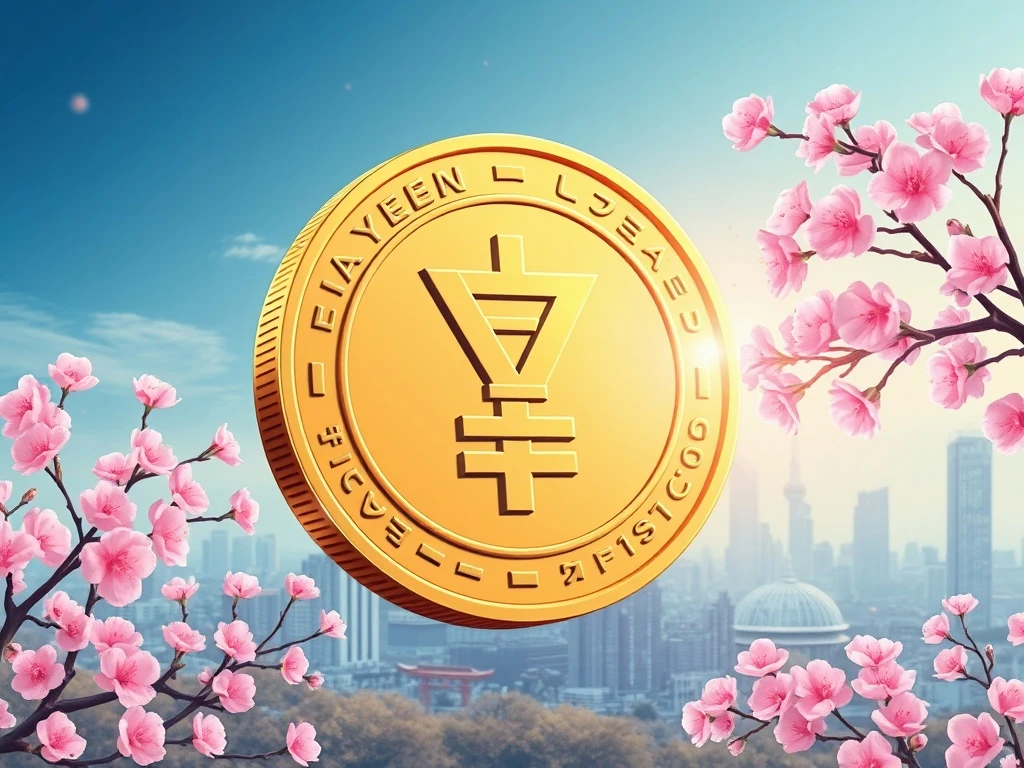Revolutionary Japan Stablecoin Approval Poised to Reshape Finance

The cryptocurrency world often anticipates significant regulatory shifts. Now, Japan stands at the forefront of a pivotal financial evolution. The nation is preparing to approve its first domestic yen-backed stablecoin this fall. This groundbreaking development promises to reshape not only Japan’s digital currency landscape but also potentially influence demand for Japanese government bonds.
Japan’s Pivotal Stablecoin Approval
Japan’s Financial Services Agency (FSA) is advancing plans to greenlight the issuance of yen-denominated stablecoins. This marks a significant milestone, allowing the country’s first domestic fiat-pegged digital currency. The move comes as early as this fall, signaling Japan’s commitment to embracing digital financial innovation. This approval follows the nation’s 2023 stablecoin law, which established a clear legal framework for such assets.
Tokyo-based fintech firm JPYC will lead this initiative. The company plans to register as a money transfer business within the month. This registration is a crucial step for JPYC to commence its operations. The impending approval positions JPYC to become the country’s first official yen-pegged stablecoin, setting a precedent for future digital currency developments in Japan.
Understanding JPYC: Japan’s First Yen-Backed Stablecoin
JPYC is meticulously designed to maintain a fixed value. Specifically, 1 JPYC will always equal 1 Japanese yen. This stability is crucial for a reliable digital currency. The stablecoin will be fully backed by highly liquid assets. These assets include bank deposits and Japanese government bonds (JGBs). This robust backing ensures the stablecoin’s value remains consistent.
The issuance process for JPYC is straightforward. Individuals or corporations submit purchase applications. Following this, tokens are issued via bank transfer directly to digital wallets. This efficient mechanism facilitates seamless adoption. The global stablecoin market, primarily dominated by dollar-pegged assets like USDT and USDC, currently exceeds $286 billion. While dollar stablecoins already operate in Japan, JPYC represents the country’s inaugural yen-based offering. This new **yen-backed stablecoin** provides a localized alternative.
Reshaping the Japanese Government Bonds Market
The introduction of yen stablecoins could significantly impact Japan’s bond market. Okabe, a representative of the JPYC issuing company, recently highlighted this potential on X. He noted that leading stablecoin issuers in the United States have become major purchasers of US Treasurys. They hold these bonds as collateral for their circulating tokens.
A similar trend could emerge in Japan. If JPYC achieves widespread adoption, it might substantially boost demand for **Japanese government bonds**. Okabe specifically stated, “JPYC will likely start buying up Japanese government bonds in large quantities going forward.” This new institutional demand could influence JGB interest rates. Countries lagging in stablecoin development risk higher government bond interest rates. They miss out on this new class of institutional investment. Therefore, monetary policy considerations are now driving governments, including Japan, to accelerate stablecoin frameworks.
The Broader Landscape of Crypto Regulation Japan
Japan has long been a leader in cryptocurrency regulation. The nation established clear frameworks early on. Its proactive stance ensures consumer protection and market stability. The 2023 stablecoin law, in particular, provided a robust legal basis for issuing stablecoins. This law mandates that stablecoins must be linked to the yen or another fiat currency. They must also be backed by reserve assets and redeemable at face value.
This progressive approach extends to foreign-issued stablecoins as well. Circle officially launched USDC in Japan on March 26. This followed regulatory approval for its listing on SBI VC Trade. SBI Holdings and Circle Japan KK operate this crypto exchange as a joint venture. The FSA’s approval, granted on March 4, marked a significant moment. It was the first time the country cleared a foreign-issued stablecoin under its strict regulatory framework. Circle plans to expand USDC listings to Binance Japan, bitbank, and bitFlyer. These exchanges rank among Japan’s largest, processing significant daily volumes and attracting millions of monthly visits. This dual approach signifies a comprehensive **crypto regulation Japan** strategy, embracing both domestic and international stablecoin innovations.
Future Implications and Global Standing
The approval of **JPYC** signals a new era for digital finance in Japan. This move could pave the way for broader stablecoin adoption across various sectors. Potential use cases include remittances, e-commerce, and decentralized finance (DeFi). A stable, yen-pegged digital currency offers efficiency and cost savings for cross-border transactions. It also provides a new payment rail for domestic commerce.
Furthermore, Japan’s leadership in stablecoin regulation positions it as a key player in the global digital currency landscape. As more nations explore central bank digital currencies (CBDCs) and private stablecoins, Japan’s experience offers valuable insights. The successful integration of **yen-backed stablecoin** into its financial system could serve as a model for other economies. This strategic move reinforces Japan’s commitment to innovation while maintaining financial stability and security in the evolving digital age.







